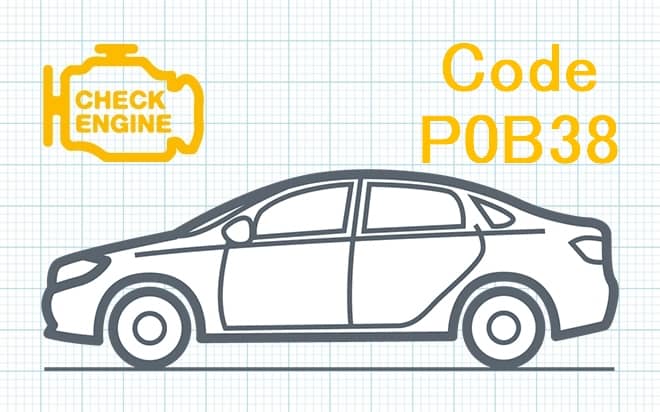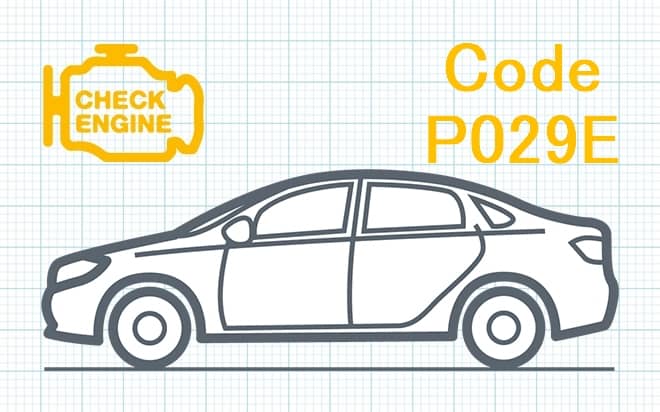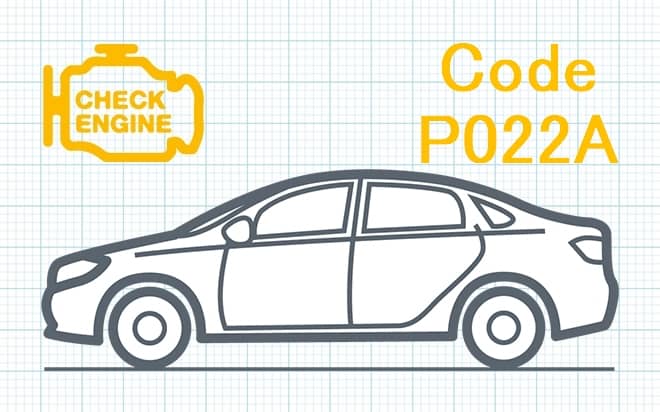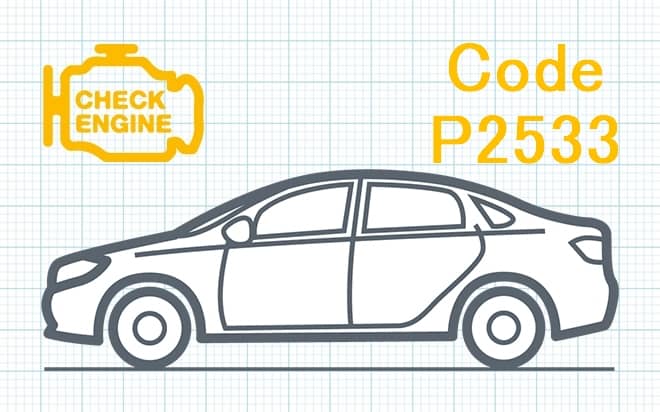Fault code P0185 is called “Fuel Temperature Sensor “B” Circuit Malfunction” but in different programs it may be called differently. This fault designation applies to all vehicles equipped with OBD-II.
Technical description and explained code P0185
Stored code P0185 means that the powertrain control module (PCM) has detected a voltage signal from the fuel temperature sensor that is outside the programmed range. Fuel temperature sensors are normally integrated into the fuel composition sensor.
As the fuel passes through the fuel sensor, the percentage of ethanol, water, and other contaminants is estimated. An appropriate voltage is applied to the PCM according to the level of fuel contamination.
The amount of ethanol present in the fuel is usually classified independently of other contaminants. Flex fuel vehicles function normally even with up to eighty-five percent ethanol in the fuel.
The fuel temperature is recognized by the PCM as the pulse width or horizontal portion of the waveform. The thicker the pulse width signal, the higher the fuel temperature passing through the fuel composition sensor.
If a signal is received from the sensor during fuel temperature measurement that indicates the fuel temperature is outside the programmed range, code P0185 will be stored. The Malfunction Indicator Light (MIL) may then illuminate, requiring several ignition failure cycles to illuminate.
Symptoms of vehicle malfunctions
The main signal that an error P0185 has occurred is the Malfunction Indicator Lamp (MIL) is also known as the CheckEngine Light.
It can also be warning signs such as:
- Check engine control lamp on the control panel will light up (the code will be recorded in the memory as a malfunction).
- The engine stalls or starts badly.
- Loss of power.
- Increased fuel consumption.
- There may be no symptoms other than a stored fault code.
The severity of error P0185 is high, the cause should be corrected as soon as possible. Since the vehicle engine may stall and run erratically if the fuel temperature is too low.
Factors that can cause this error code
The error code P0185 can mean that one or more of the following problems have occurred:
- Fuel temperature and composition sensor is defective.
- The intake air temperature sensor is defective.
- The ambient temperature sensor has failed.
- Damaged connector or wiring problem.
- Excessive resistance in the electrical circuit.
- Sometimes the cause is a defective PCM module.
How to fix or reset OBD-2 code P0185
Some suggested steps for troubleshooting and fix the error code P0185:
- Read all stored data and error codes with an OBD-II scanner.
- Clear the error codes from the computer memory.
- Test-drive the vehicle to see if error P0185 appears again.
- Visually inspect the connector and electrical wires for damage. If present, repair the damaged areas.
- Check the resistance to make sure it is within tolerance.
- Test the temperature and fuel composition sensor.
- Test the engine control module (ECM).
Diagnose and repair of problems
Locate the temperature and fuel composition sensor; once found, visually inspect connectors and wiring. Look for scuffs, exposed wires, burn marks, or melted plastic. Disconnect the connectors and carefully inspect the terminals inside. Inspect them for rust and other damage.
Remove diagnostic trouble code P0185 from the memory and see if it comes back. If it is gone, the problem was in the wires or connections. If the fault code returns, we will need to test the sensor and associated circuits.
Testing the temperature and fuel composition sensor
The fuel composition sensor is usually wired with a 5 volt reference signal and ground. A variable resistance fuel composition sensor closes the circuit and signals to the PCM about fluctuations in the fuel temperature voltage.
Check the reference voltage and ground at the fuel temperature sensor connector with a multimeter. If there is no reference voltage on the sensor connector, check the parallel circuits on the PCM connector.
If no reference voltage is detected on the PCM connector, the problem may be a faulty PCM or a PCM programming error. But consider a faulty PCM as the main cause of error P0185 only as a last resort.
Using an oscilloscope, you can observe waveform data if a reference voltage and ground are present at the fuel temperature sensor connector. Connect the test leads to the ground and signal circuits and observe the waveforms on the display screen.
Use an infrared thermometer to obtain the actual fuel temperature and compare it to the temperature reflected by the oscilloscope on the screen. If the fuel temperature reflected by the oscilloscope does not match the thermometer reading, the sensor is defective and must be replaced.
On which vehicles does this problem occur most frequently
Fault code P0185 can occur on different vehicles but there are statistics on which brands this occurs most often. Here is a list of some of them:
- BMW (E46)
- Chevrolet
- Dodge
- Fiat
- Ford
- Mercedes-Benz
- Nissan
- Volkswagen (Golf)
Fault code P0185 can sometimes be found with other errors. The most common are the following: P0186, P0187, P0188, P0189.





